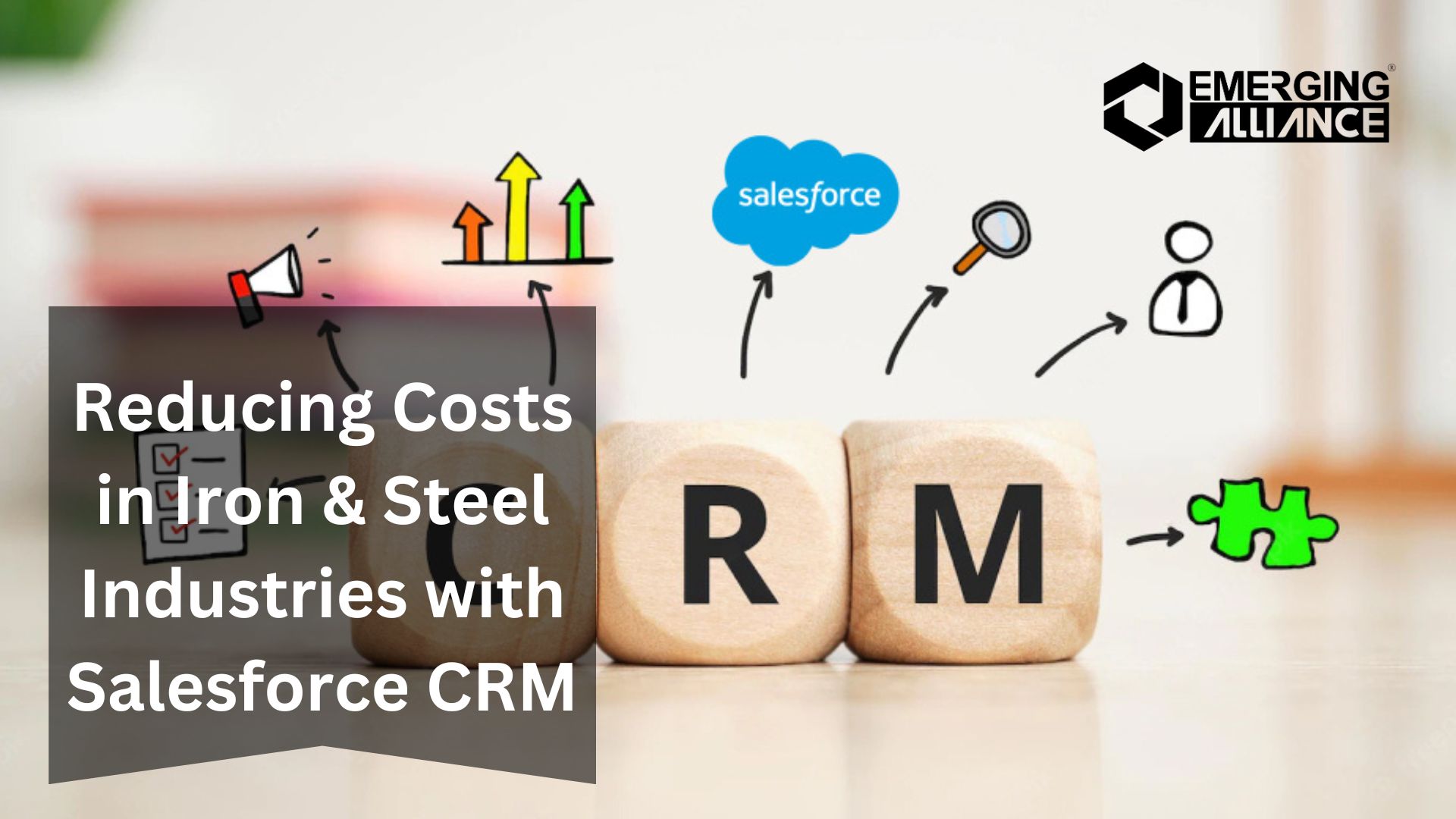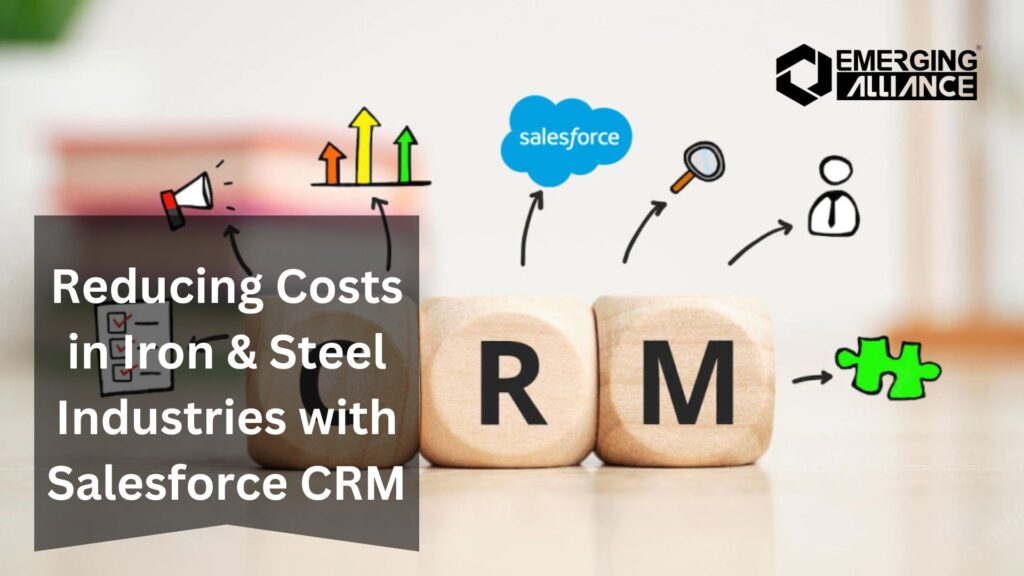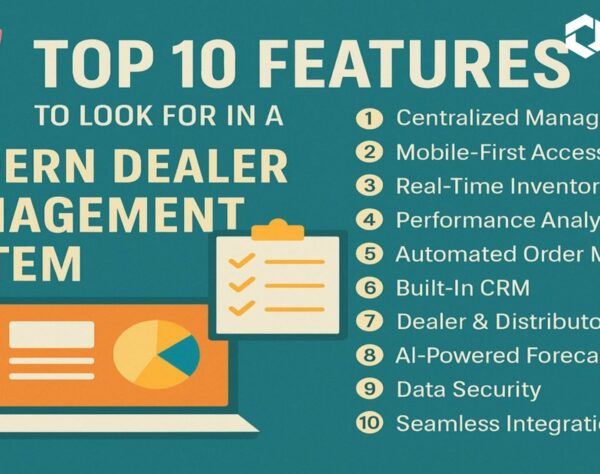
Reducing Costs in Iron & Steel Industries with Salesforce CRM

Achieve Seamless Integration Across Iron & Steel Operations with Salesforce
The iron and steel industry is an essential pillar of the global economy, but like many industrial sectors, it faces increasing pressure to reduce costs, improve efficiency, and enhance customer relations. With rising operational expenses, volatile raw material prices, and the need for better decision-making, companies in this industry must adopt innovative solutions. Salesforce CRM offers an effective and scalable approach to addressing these challenges while boosting profitability.
In this blog, we’ll explore how implementing Salesforce CRM can help iron and steel operations reduce costs, streamline processes, and gain a competitive edge in a dynamic market.
What is Salesforce CRM?
Salesforce CRM (Customer Relationship Management) is a cloud-based platform that helps businesses manage their interactions with customers and prospects. It’s designed to enhance sales, service, and marketing capabilities through automation, data analysis, and reporting features. While CRM is often associated with customer management, Salesforce CRM can be a game-changer for industries like iron and steel by providing valuable insights, increasing efficiency, and optimizing operations.
Key Benefits of Salesforce CRM in the Iron & Steel Industry
1. Improved Supply Chain Management
In the iron and steel sector, supply chain efficiency is critical to maintaining competitive pricing. With Salesforce CRM, companies can integrate supplier and inventory data into a single platform, providing a real-time view of the supply chain. This leads to better forecasting, minimized delays, and reduced procurement costs. By automating order management and demand forecasting, businesses can reduce excess inventory and lower storage costs, ultimately driving down operational expenses.
2. Streamlined Customer Relationship Management
Customer satisfaction is a top priority in the iron and steel industry. Salesforce CRM helps businesses maintain stronger relationships with customers by centralizing all communications, order histories, and support tickets. Through automated workflows and data analytics, the CRM platform enables sales teams to deliver more personalized service and follow-ups, reducing customer churn and increasing repeat business. With a unified system for tracking customer preferences and behaviors, companies can improve their sales pipeline and reduce the cost of acquiring new clients.
3. Enhanced Sales Process and Quotation Management
Salesforce offers robust tools for managing the sales process, from lead generation to deal closure. In the iron and steel industry, where pricing can fluctuate based on raw material costs and demand, Salesforce CRM can simplify quotation and pricing management. The system allows sales teams to generate accurate quotes quickly, ensuring that pricing is consistent and competitive. By automating the quotation process, iron and steel companies can reduce manual errors, accelerate the sales cycle, and decrease administrative costs associated with contract creation.
4. Data-Driven Decision Making
One of the most significant advantages of Salesforce CRM is its powerful analytics capabilities. With custom dashboards and reports, management can gain valuable insights into operational performance, sales trends, and market conditions. By leveraging data in real-time, businesses can make more informed decisions that help optimize costs and improve operational efficiency. Whether it’s identifying underperforming products, spotting opportunities for cost reductions, or analyzing production bottlenecks, Salesforce CRM helps companies in the iron and steel industry reduce waste and improve profitability.
5. Automation of Routine Tasks
Routine administrative tasks like data entry, invoicing, and follow-up emails can consume a lot of time and resources in an iron and steel operation. Salesforce CRM offers automation tools that reduce the burden of these repetitive tasks. By automating manual processes, your team can focus on more strategic activities, such as building customer relationships or optimizing production workflows. This leads to significant time savings and cost reductions, which can be redirected toward more value-generating activities.
6. Collaboration Across Teams
Iron and steel operations often involve cross-functional teams—sales, logistics, production, and customer service—that need to collaborate closely to ensure smooth operations. Salesforce CRM provides a centralized platform where teams can easily share information, track tasks, and monitor project progress. By improving collaboration across departments, companies can avoid redundancies, reduce communication breakdowns, and streamline workflows, ultimately leading to cost savings.
How Salesforce CRM Drives Cost Savings in Iron & Steel Operations
1. Reduce Operational Overhead
By integrating various processes like sales, inventory, and customer service into a single platform, Salesforce CRM helps businesses eliminate the need for multiple systems, reducing software licensing and IT maintenance costs. The platform’s cloud-based nature also means companies do not have to invest in expensive hardware or manage servers, which further reduces operational overhead.
2. Minimize Downtime and Production Delays
In an industry as equipment-intensive as iron and steel, even small delays in production can result in significant cost overruns. Salesforce CRM allows for better scheduling and coordination, ensuring that inventory and materials are available when needed. It also provides tools to track and manage production equipment, helping to minimize downtime and improve asset utilization, which ultimately leads to lower maintenance and repair costs.
3. Improve Customer Retention and Reduce Acquisition Costs
Acquiring new customers in the iron and steel industry can be costly, especially in a competitive global market. Salesforce CRM helps companies improve customer retention by offering tools for personalized communication, targeted promotions, and timely follow-ups. A well-maintained customer base means less money spent on marketing campaigns and new customer acquisition efforts, directly reducing costs.
4. Optimize Pricing Strategies
With Salesforce CRM, iron and steel companies can leverage advanced pricing and forecasting tools that take into account supply chain fluctuations, market trends, and customer demand. This enables businesses to adjust their pricing strategies dynamically, ensuring they remain competitive while maximizing margins.
The iron and steel industry operates in a complex environment, with ever-increasing pressure to reduce costs while maintaining operational excellence. By adopting Salesforce CRM, companies can optimize a range of business processes—from sales and customer management to production and supply chain operations. With automation, better data insights, and enhanced collaboration, Salesforce CRM offers a comprehensive solution for reducing costs, improving efficiency, and boosting profitability in iron and steel operations.
If you’re ready to take your iron and steel operations to the next level, integrating Salesforce CRM can be a game-changer. Contact our website today to learn more about how this powerful platform can help you optimize costs and improve your bottom line.
Need expert help? Fill out the form below, and we’ll reach out to you shortly!







